A War Crimes Investigation Could Benefit Both Sides in Gaza
If and when Palestine becomes a member state of the International Criminal Court, Israel should rejoin, and cooperate with any investigation into human rights violations.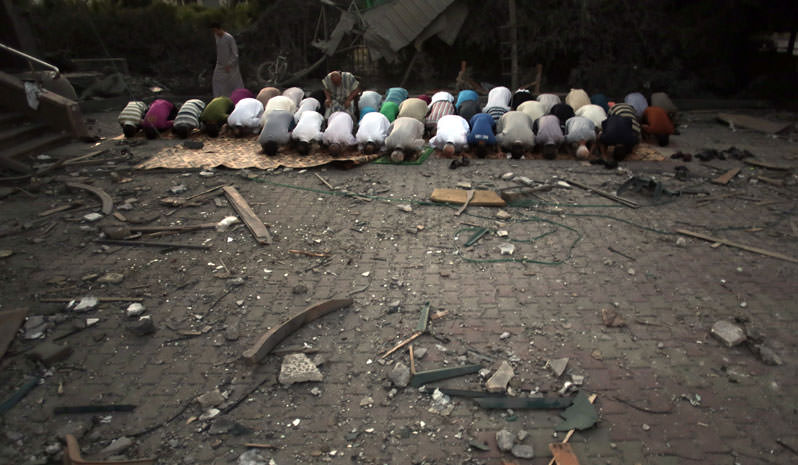 Palestinians attend the evening prayers outside a destroyed mosque, after it was hit by an Israeli strike in Gaza City. AP/Khalil Hamra
Palestinians attend the evening prayers outside a destroyed mosque, after it was hit by an Israeli strike in Gaza City. AP/Khalil Hamra
This column isn’t going to win me many friends or admirers among those who have taken sides in the ongoing and horrific carnage in Gaza. Zionists will label me as just another naive self-hating Jew. Anti-Zionists will see me as just another apologist for Israeli and American aggression.
So be it.
It would be easier for me to remain silent, to direct this column as per usual to the depredations of the U.S. Supreme Court and the slow and ugly transformation of American law it is engineering term by term. But the bloodletting in Gaza has spiraled out of control, and silence for me at least is no longer an option.
This week, 17 human rights organizations, including Amnesty International and Human Rights Watch, reissued an open letter to Palestinian Authority President Mahmoud Abbas that was first circulated in May. The letter calls on Abbas to accept the jurisdiction of the International Criminal Court so that the tribunal, which sits at The Hague, Netherlands, can investigate allegations of war crimes and crimes against humanity committed by Israel on Palestinian territory. Acceptance of the ICC’s jurisdiction is needed to enable the court to formally act on a complaint lodged with it July 25 by a Paris-based lawyer on behalf of the Palestinian Ministry of Justice.
I support the human rights letter and the call for an investigation into possible Israeli war crimes, but with an important amendment: I urge Israeli Prime Minister Benjamin Netanyahu to cooperate with the ICC and publicly press the court to probe allegations of war crimes committed by Hamas during the current conflict as well. Only a comprehensive and complete examination of the conduct of both sides can yield a truthful picture of the conflict and point the way to a just resolution.
And only full cooperation by both sides with the ICC in a fresh investigation can avoid repeating the mistakes and controversies surrounding the Goldstone Report on the 2008-09 Gaza war, compiled by the U.N. Human Rights Council under the leadership of former South African Judge Richard Goldstone. The report, which was prepared without official Israeli input, concluded that both Israel and Palestinian militants had intentionally committed war crimes in the prior conflict by targeting civilian populations. Goldstone subsequently retracted the report’s findings of intentional civilian targeting as to Israel but attributed the report’s flaws to the absence of Israeli cooperation, writing, “Israel’s lack of cooperation with our investigation meant that we were not able to corroborate how many Gazans killed were civilians and how many were combatants.”
I have never met Abbas, and I have no illusions that he would be moved by any urgings from me. I have, however, met Netanyahu. He and I graduated from the same suburban Philadelphia high school, Netanyahu with the class of ’67 and I the following year. Netanyahu signed a copy of the Hebrew translation of my first novel, congratulating me and conveying his good wishes. Even if he, too, would scarcely notice an appeal from a former schoolmate, I am compelled to make the effort.
The ICC was founded after a 1998 conference attended by 160 nations in Rome. The conference produced an agreement known as the Rome Statute, which took effect in July 2002, establishing the ICC as the first treaty-based international criminal court for the purpose of investigating and trying individuals — both governmental and non-state actors — accused of genocide, war crimes, crimes against humanity and crimes of aggression, as defined by the Geneva Conventions, the Rome Statute and other sources of international law. The Rome Statute authorizes the court to impose heavy jail sentences, up to life imprisonment, on those convicted.
Although the ICC is affiliated with the United Nations, it is legally independent. An agreement reached in 2004 permits the U.N. Security Council to refer cases directly to the ICC and to require the court to defer investigations of alleged crimes for up to 12 months, and for additional open-ended periods thereafter.
Today, 122 nations are parties to the Rome Statute, acceding to the ICC’s jurisdiction. Membership in the court and cooperation with the enforcement of its judgments are voluntary. The tribunal has no police or arrest powers of its own.
Both Israel and the United States signed the Rome Statute in 2000 but each withdrew from it in 2002. The U.S. dispatched a terse three-sentence letter signed by then-U.N. Ambassador John Bolton, and Israel expressed support for the court’s goals but also that it harbored grave concerns over perceived political biases in the ICC’s procedures and administration.
Palestine applied for ICC membership in 2009, but its application was rejected due to the lack of statehood. However, in November 2012, the U.N. General Assembly accorded Palestine non-member observer state status, opening the door for ICC party status, as advocated by Human Rights Watch and Amnesty International. Should Abbas reapply to the court, it is very likely his application this time would be accepted.
If and when Palestine becomes an ICC state party, Israel would have the option either of ignoring any new Gaza investigation much as it shunned Goldstone’s team, or cooperating with the new probe and having a voice in shaping its outcome, whether or not it also chose to reclaim party status in the court for itself.
Either way, should it conduct a new inquiry, the ICC will have an abundance of material to plumb. Under the Rome Statute, the definition of war crimes extends to “grave breaches” of international law involving intentional attacks upon civilian populations, the taking of hostages and the intentional destruction of schools and hospitals.
Both sides are clearly at risk of being declared culpable. Israel is in jeopardy, among other acts, for its blockade of Gaza and for the disproportionate killing of Palestinian women and children. Israel recently acknowledged that one of its mortars landed on a U.N. school, but called it an accident. Hamas and related militant factions are vulnerable, among other acts, for indiscriminately launching thousands of missiles into Israel with the intent to kill as many civilians as possible, and for intentionally imbedding its rocket arsenals and launchers within the civilian infrastructure of Gaza.
Both sides are also at risk of having their guiding ideologies of war and dehumanization exposed to the world. Over the years, the Israeli government has moved steadily to the right. Its foreign minister, Avigdor Lieberman — perhaps the second-most powerful politician in the entire country after Netanyahu — advocates a plan likened by some to apartheid to resettle Arab Israelis to any newly created Palestinian state.
The leaders of Hamas, for their part, have never revoked their organization’s founding covenant, a virulently anti-Semitic screed that calls not only for the destruction of Israel but encourages the slaughter of Jews by Muslims everywhere.
The ICC’s mission in such a context — to determine whether war crimes have occurred and to apportion responsibility and blame if they have — would be daunting, but not impossible. If undertaken impartially, as I expect, it would be one worthy of my support, even if it wouldn’t net me any new friends and might cost me a few old ones.
Your support matters…Independent journalism is under threat and overshadowed by heavily funded mainstream media.
You can help level the playing field. Become a member.
Your tax-deductible contribution keeps us digging beneath the headlines to give you thought-provoking, investigative reporting and analysis that unearths what's really happening- without compromise.
Give today to support our courageous, independent journalists.

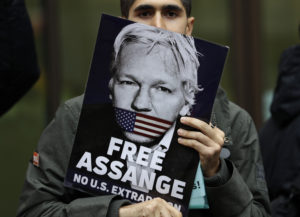
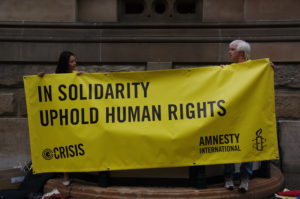
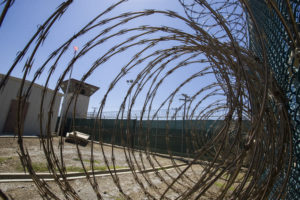

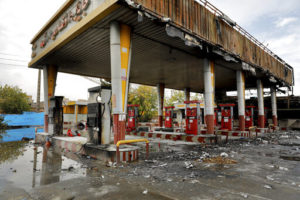
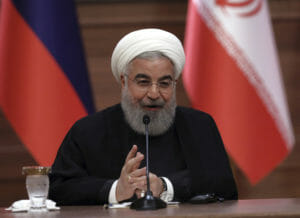


You need to be a supporter to comment.
There are currently no responses to this article.
Be the first to respond.